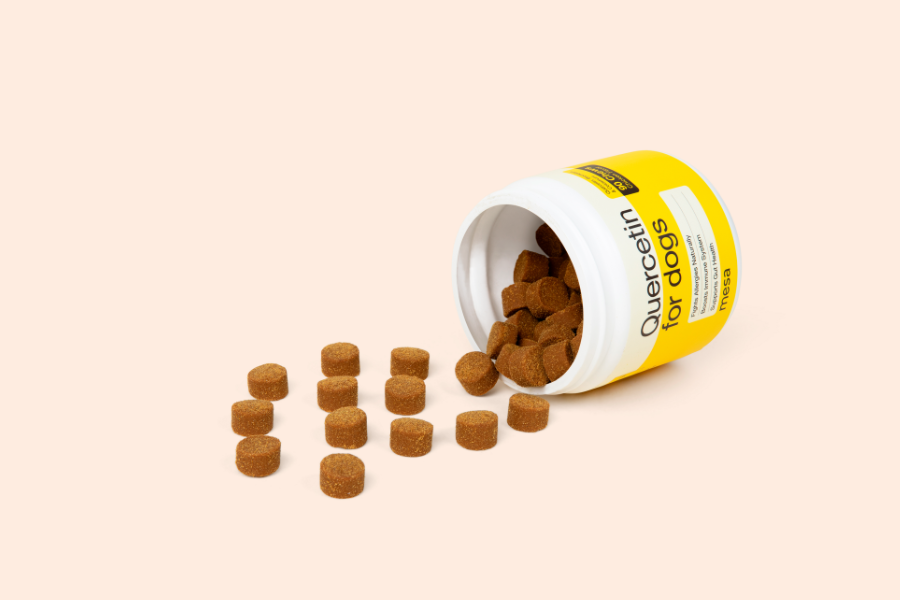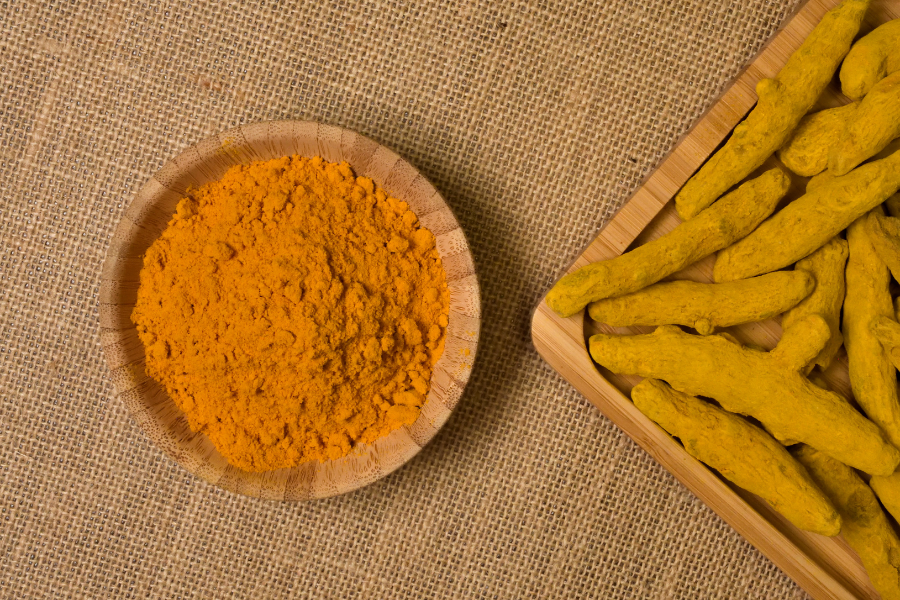If you’re the type of pet parent who reads ingredient labels or Googles everything your dog eats (join the club), you’ve probably come across something intriguing: bromelain. Maybe you've seen it in descriptions of fancy pet supplements, or perhaps you've read about its benefits for humans and wondered if it’s safe or beneficial for your furry best friend. Well, today we’re going to be breaking down everything you need to know about bromelain, its role in dog nutrition, and whether it’s a good fit for your pup’s diet.
What is Bromelain?
First, the let's cover some basics. Bromelain is a natural enzyme found in pineapple stems and fruit. And while pineapple might make you think of fruity drinks and tropical vacations, bromelain should make you think "health booster." It’s mostly known for its ability to break down proteins, which makes it a superstar in digestion. But bromelain’s talents don’t stop there—it’s also got anti-inflammatory, anti-swelling, and even immune-boosting properties.
Humans have been using bromelain for years for everything from improving gut health to easing joint pain. Now, researchers and vets are seeing its potential benefits for dogs, too.
But before you toss a pineapple slice to your pup or sprinkle bromelain powder in their kibble, let’s talk about what this enzyme can (and can’t) do for your furry friend.
SHOP DOG QUERCETIN & BROMELAIN CHEWS
Is Bromelain Safe for Dogs?
The short answer? Yes, bromelain is safe for dogs—when used correctly.
Dogs can digest bromelain just fine, and in fact, it’s found in many pet supplements, especially those designed to support immune, joint health or gut function. That said, like with any supplement, the key is moderation and proper dosing. Too much bromelain can cause side effects such as an upset stomach, so it’s important to stick to vet-recommended amounts.
Pineapple itself is also safe for dogs in small quantities (it’s even a popular treat for its natural sweetness and hydration benefits). However, the bromelain content in fresh pineapple is much lower compared to concentrated versions found in supplements.
Benefits of Bromelain for Dogs
Curious about how bromelain can help your pup thrive? Here’s a closer look at its potential benefits:
1. Improved Digestion
Bromelain’s protein-digesting properties make it a great helper for your dog’s digestive system. It breaks down proteins into smaller pieces, making them easier for your dog to absorb. This can be especially helpful for dogs who occasionally deal with an upset stomach or who have trouble digesting certain foods.
2. Joint Health and Pain Relief
A lot of the buzz surrounding bromelain in dog nutrition comes from its anti-inflammatory properties. For senior dogs or those with arthritis, bromelain can help reduce swelling and pain, improving mobility. It’s often combined with other natural anti-inflammatories like turmeric or glucosamine for maximum joint support.
3. Wound Healing and Recovery
Bromelain also has a reputation for speeding up healing. It may help reduce swelling and bruising for dogs recovering from minor injuries or surgeries. While it’s not miracle cream, it can make a noticeable difference in your pup’s recovery time.
4. Immune System Support
This enzyme also boasts immune-boosting powers by helping to regulate the body’s response to inflammation. Think of bromelain as a little cheerleader for your dog’s immune system, keeping everything running smoothly.
5. Allergy Relief
Some studies suggest that bromelain can help with seasonal allergies or skin irritations by reducing inflammation and easing symptoms like itching. If your dog scratches like crazy every spring, bromelain might offer some relief (and save your sanity).
How to Use Bromelain in Your Dog’s Diet
If you’re looking to add bromelain to your dog’s diet, there are a few simple options:
- Supplements The most common route. Bromelain is found in many pet supplements, especially those targeting joint health. Look for products that specify the dosage, and always check for quality certifications. Bonus points for supplements that pair bromelain with other dog-friendly nutrients!
- Pineapple Treats While it won’t deliver the same concentrated health benefits as a supplement, fresh pineapple can be an enjoyable, bromelain-rich snack. Just chop it into bite-sized pieces, avoid the core and skin, and offer it in moderation (pineapple is sugary, after all).
- Specialty Formulas Some premium dog foods include bromelain as an added ingredient. These can be a convenient option if you’re looking for an all-in-one solution.
Pro Tip: Always introduce new supplements or foods slowly. Start with a small amount and keep an eye out for any unusual reactions.
Are There Any Risks or Side Effects?
While bromelain is largely safe for dogs, there are a few things to keep in mind:
- Dosage Matters
Too much bromelain can lead to stomach upset, vomiting, or diarrhea. That’s why it’s crucial to follow dosage instructions and consult with your vet before starting any new supplement.
- Allergic Reactions
Although rare, some dogs may be allergic to bromelain or pineapples. Watch for any signs of an allergic reaction, such as redness, itching, or swelling.
- Interactions with Medications
If your dog is already taking medications—especially blood thinners or anti-inflammatories—bromelain could potentially interact with those. Always speak to your vet about possible conflicts.
- Sugar Watch
While fresh pineapple is a bromelain-rich treat, it’s also high in sugar. Dogs prone to weight gain or those with diabetes should avoid sugary fruits and sugary treats, bromelain benefits or not.
What to Ask Your Vet
Before you jump into adding bromelain to your dog’s diet, have a quick chat with your vet. Some helpful questions to ask include:
- Is bromelain a good fit for my dog’s specific health needs?
- What’s the best way to include it in their diet?
- Are there any risks based on my dog’s medical history?
Your vet will know your dog’s health inside and out, so they’re your best resource for tailor-made advice.
Final Thoughts
Bromelain might sound like just another trendy health buzzword, but for dogs, it’s a genuinely exciting ingredient with a range of benefits—from better digestion to joint health to allergy relief. Whether your goal is to ease your elderly dog’s arthritis or just add a little nutritional boost to their diet, bromelain may be worth considering.
So yes, dogs can absolutely have bromelain as long as it’s provided in safe and appropriate amounts. If you’re unsure about where to start, we always recommend chatting with your vet or looking for high-quality, trusted pet supplements that feature bromelain.
At the end of the day, you know your dog best. Whether you add a sprinkle of bromelain-rich goodness or stick with their usual menu, the important thing is that they stay happy, healthy, and, of course, spoiled rotten!
References
1) Atuahene D, Costale A, Martello E, Mannelli A, Radice E, Ribaldone DG, Chiofalo B, Stefanon B, Meineri G. A Supplement with Bromelain, Lentinula edodes, and Quercetin: Antioxidant Capacity and Effects on Morphofunctional and Fecal Parameters (Calprotectin, Cortisol, and Intestinal Fermentation Products) in Kennel Dogs. Vet Sci. 2023 Jul 27;10(8):486. doi: 10.3390/vetsci10080486. Erratum in: Vet Sci. 2024 Mar 27;11(4):149. doi: 10.3390/vetsci11040149. PMID: 37624273; PMCID: PMC10459215.




